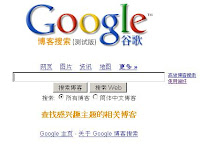 On 12 January, the official Google blog posted a seemingly innocuous entry called “a new approach to China”. In it Google claimed that serious cyber-attacks in December resulted in the theft of their intellectual property. The post stated the attack was aimed at accessing the Gmail accounts of Chinese human rights activists. It also said the accounts of dozens of American, Chinese and European Gmail users who advocate human rights in China “appear to have been routinely accessed by third parties”. Then they dropped the bombshell. As a result of these attacks, Google decided to stop censoring results on Google.cn. “We recognize that this may well mean having to shut down Google.cn, and potentially our offices in China,” concluded post author David Drummond, Google Senior Vice President, Corporate Development and Chief Legal Officer.
On 12 January, the official Google blog posted a seemingly innocuous entry called “a new approach to China”. In it Google claimed that serious cyber-attacks in December resulted in the theft of their intellectual property. The post stated the attack was aimed at accessing the Gmail accounts of Chinese human rights activists. It also said the accounts of dozens of American, Chinese and European Gmail users who advocate human rights in China “appear to have been routinely accessed by third parties”. Then they dropped the bombshell. As a result of these attacks, Google decided to stop censoring results on Google.cn. “We recognize that this may well mean having to shut down Google.cn, and potentially our offices in China,” concluded post author David Drummond, Google Senior Vice President, Corporate Development and Chief Legal Officer.There is little doubt that Google made a business decision and dressed it up with noble values. The news was even kept secret from Google’s 700 Chinese staff until it was made publicly available. Techcrunch’s Sarah Lacy offered three reasons why Google made their decision. Lacy claims Google were not doing great business in China (with 30 percent of the market) and could never outdo local leader Baidu (with 63 percent). Secondly Google had already made their decision and the announcement was a “scorched earth” move aimed at buying Google goodwill in the west. Thirdly it is only going to get harder for western firms as cashed-up Chinese tech companies begin infiltrating the US market.
The official Chinese news agency Xinhua has been strangely diffident in its response. Normally it reacts bullishly to any perceived criticism of the Communist regime but an article on 13 January merely suggested China was seeking more information on Google’s stance. They quoted an anonymous high ranking official merely said "It is still hard to say whether Google will quit China or not. Nobody knows.” They also quoted Guo Ke, professor of mass communication at Shanghai International Studies University, who said it was "almost impossible" for Google to quit China and also impossible for the Chinese government to give up its management right over the Internet. "I think Google is just playing cat and mouse, and trying to use netizens' anger or disappointment as leverage,” Guo told Xinhua.
The official Chinese Government response is that companies must follow the law of the land. The Chinese Foreign Ministry said China welcomed foreign Internet companies but that those offering online services must do so “in accordance with the law.” According to the New York Times, another high-ranking official has called for even tighter Internet restrictions. Wang Chen, the information director for the State Council urged Internet companies to increase scrutiny of news or information that might threaten national stability and emphasized the importance of “guiding” online public opinion.
Subsequently Google has hinted it will negotiate with the Communist regime. It may be that Google needs China more than China needs Google. China has by far the world’s largest internet population with estimated 338 million Internet users - 46 million of those were added in the last 12 months alone. The entire network is policed by the Great Firewall of China and the government stepped up efforts to censor the Web during the Beijing Olympics and the Communist regime’s 60th anniversary last year. During the purge, the Chinese government made particular efforts to shut down social media sites such as blogs, online video sites, Facebook, Twitter and Youtube.
However, many Chinese users have sophisticated knowledge of the Internet and are able to circumvent the censorship. Locals call it “fanqiang”, or “scaling the wall.” Users connect to an overseas computer via a proxy server which costs $2 a month to share with about two dozen others. Chinese citizens engaged in such practices say the government rarely cracks down on them individually, preferring instead to go after prominent dissidents who publish information about forbidden topics online. Meanwhile non-profit companies have set up censorship-evading tools for users to download in a cat-and-mouse game with authorities.
But as The Hindu puts it, many Chinese online users will be let down by Google’s losing battle with the authorities over censorship issues. They quote Chinese Internet expert Kaiser Kuo, who believes the ordinary Chinese Internet user is being ignored. “But they are also questioning whether the moral point Google is trying to make is worth the price they have to pay,” he said. “The government no longer worries about access to outside information through Web 1.0 sites, but has closed down social media platforms such as Twitter, Facebook and YouTube that allow for the rapid dissemination of information.” The absence of Google will simply tighten the Government’s grip on power in this most closed of kingdoms.












